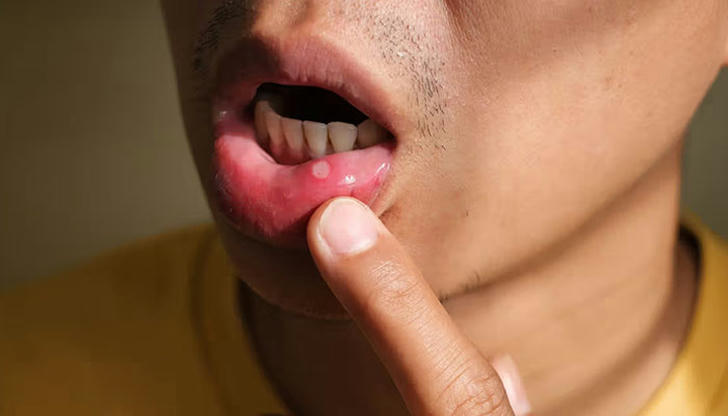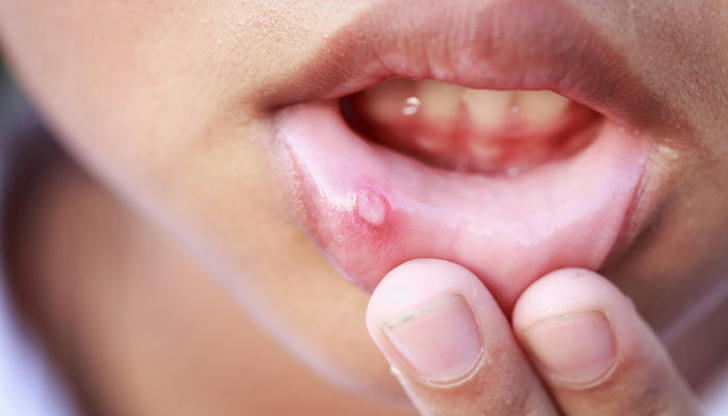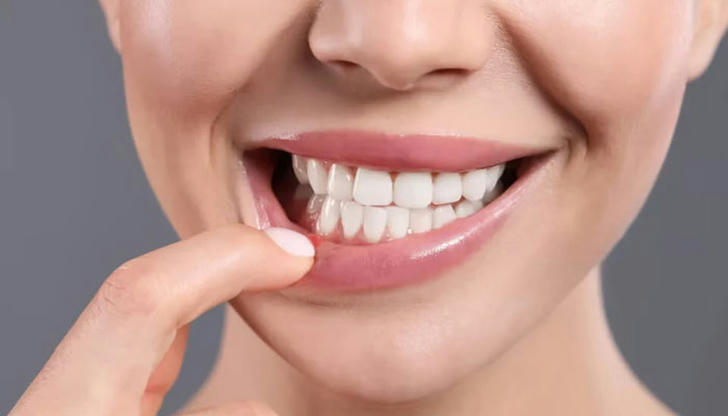Something You Should Know about Mouth Ulcers

Mouth ulcers are the most common oral mucosal disease. They usually appear as round or oval superficial ulcers with redness around them and a gray-white or yellow pseudomembrane in the center. It is a very common disease with an incidence rate of 20%. It is second only to tooth decay, periodontal disease, and other common oral diseases.
Many people suffer from mouth ulcers and the pain passes within a few days, but there are also patients whose mouth ulcers never get better and become more and more serious. Faced with the tough “minor problem” of mouth ulcers, patients have many questions. Here are some things you must know about mouth ulcers.
Why Do Mouth Ulcers Occur?

• Lack of vitamins and trace elements. A lack of trace elements can cause mouth ulcers, such as zinc, iron, vitamin B12, etc.
• High mental pressure. Work fatigue, mental stress, mood swings, neurological disorders, etc. can also cause the recurring of mouth ulcers.
• Gastrointestinal diseases. Patients with gastrointestinal diseases are prone to get it. They often suffer from diseases that affect the body’s absorption of vitamins, such as chronic gastritis, gastric ulcer, constipation, hemorrhoids, etc.
• Hormone fluctuations. Some women will get mouth ulcers during or around menstruation. This is mainly caused by the increase in progesterone levels and the decrease in estrogen levels in the body.
How to Prevent Mouth Ulcers?

Mouth ulcers are often characterized by recurrent episodes, so prevention is more important than treatment. Scientific prevention can start from the following aspects:
• Keep your mouth clean and hygienic. Brush your teeth every morning and evening, rinse your mouth after meals, and clean your teeth regularly to avoid oral infection and bacterial growth.
• Pay attention to a healthy diet. Eat more fresh fruits and vegetables, and eat less spicy, greasy, and sweet foods. Avoid irritating foods that are too hard, too hot, or too cold to prevent damage to the oral mucosa and nutritional deficiencies.
• Take proper vitamins and trace elements. Appropriate supplementation of folic acid, vitamin B6, vitamin B12, zinc, etc. can enhance the resistance and repair ability of the oral mucosa.
• Be in a good mood. Be careful to avoid decreased immune function and endocrine disorders caused by mood swings and nervousness.
How to Treat Mouth Ulcers?

Generally speaking, mouth ulcers are self-healing and can heal on their own within 1-2 weeks, but if they seriously affect the quality of life, certain treatments should be taken. There are many treatments for mouth ulcers, and different methods can be chosen depending on the size, location, pain, and cause of the ulcers.
• Rinse your mouth out with warm, slightly salted water, keeping the rinse in your mouth for up to 4 minutes at a time. Repeat four times daily.
• Use anti-inflammatory drugs: There are many topical anti-inflammatory drugs for mouth ulcers on the market, such as films, ointments, gargles, lozenges, powders, sprays, etc. Be careful to follow the instructions.
• Use analgesic drugs: such as lidocaine. But be careful to only use them when there is severe pain and affect daily speech and diet to avoid addiction.
• Local sealing: Related drugs can be used for submucosal sealing treatment.
• Physiotherapy: Use laser, microwave, and other irradiation to reduce exudation and promote healing.
However, it should be noted that the causes of mouth ulcers are many and complex. For example, if the mouth ulcers linger and do not heal or the anti-inflammatory drugs on the market are not effective, it is recommended to seek medical examination and treatment in time to screen for mouth ulcers caused by other reasons.
Myths about Mouth Ulcers

Myth 1: Eat more fruits to heal faster It is not scientific to eat a lot of fruits after suffering from mouth ulcers. Fruit acids can irritate the surface of ulcers and may worsen the condition.
Myth 2: Urgent Vitamin C Supplement to Promote Healing It is inappropriate to take large doses of vitamin C after suffering from mouth ulcers or to apply or apply vitamin C, vitamin B2, etc. to the affected area. This may irritate the ulcer surface and make the wound red, swollen, and painful.
Myth 3: Don’t brush your teeth when you have mouth ulcers If you brush your teeth less often, the teeth are not cleaned thoroughly, and food residues cannot be removed in time, it may aggravate mouth ulcers. Maintaining good oral hygiene can help promote wound healing and reduce the number of ulcers.
If the pain of mouth ulcers is severe, you can rinse your mouth with mouthwash, which can have anti-inflammatory and analgesic effects to a certain extent, but you cannot use mouthwash as a substitute for brushing your teeth.
Myth 4: Spicy food is good for mouth ulcer recovery Eating spicy food with ulcers worsens symptoms. The capsaicin in chili peppers will irritate mouth tissue mucosa, causing burning and pain. Capsaicin also affects blood flow in the mucosa, lowering local immunity and delaying healing. It may affect digestion by increasing stomach acid and motility, leading to indigestion, stomach pain, and diarrhea, hindering nutrient absorption and immunity, and slowing ulcer recovery.

Mouth ulcers are the most common oral mucosal injury. Because the cause of mouth ulcers is unknown, treatments lack specificity and have limited efficacy, so effective prevention is key. Only by maintaining good oral hygiene, paying attention to a healthy diet, properly supplementing vitamins and trace elements, maintaining a regular schedule, and combining work and rest can you stay away from mouth ulcers as much as possible.
